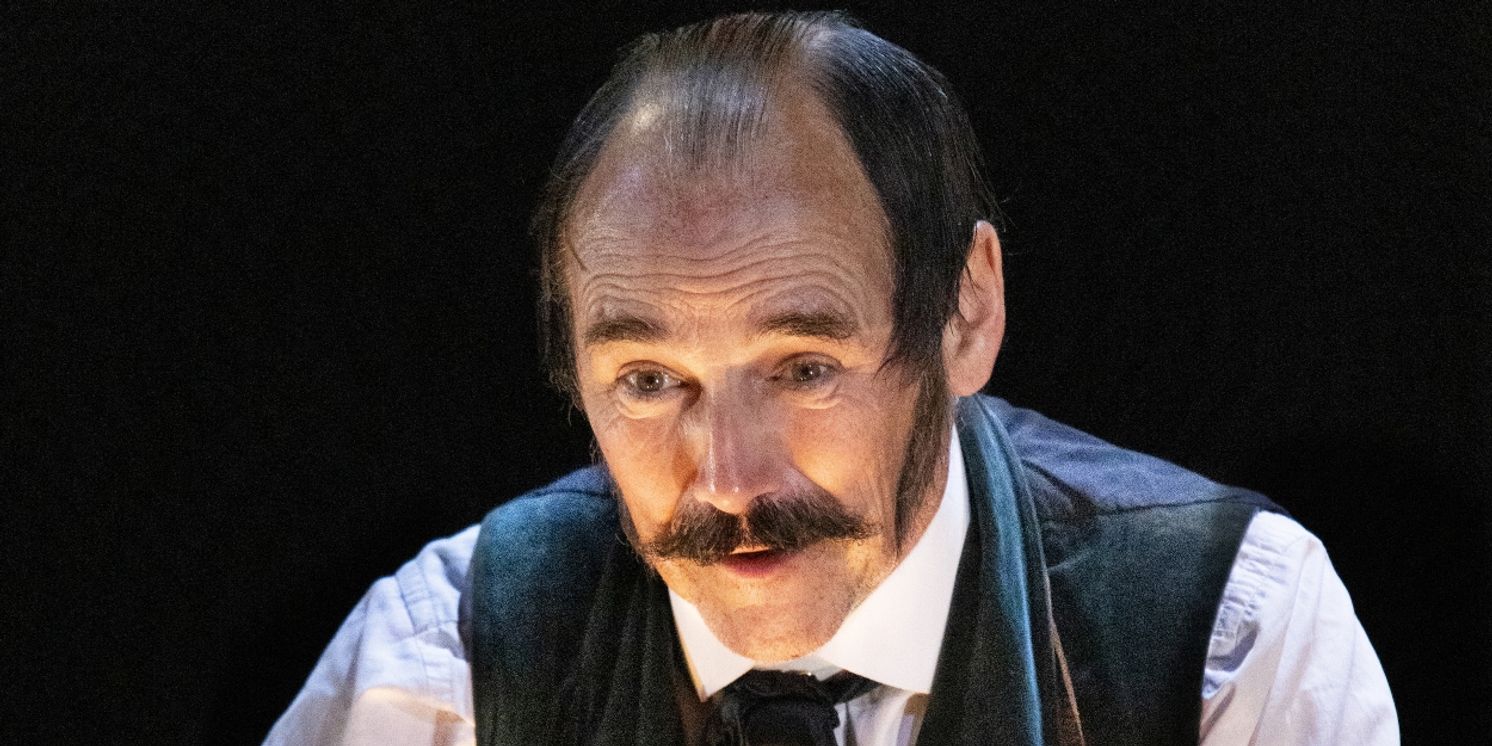Review Roundup: DR SEMMELWEIS, Starring Mark Rylance
Mark Rylance stars in Dr Semmelweis, running through 7 October at the Harold Pinter Theatre.

Mark Rylance stars in Dr Semmelweis, running through 7 October at the Harold Pinter Theatre.
Mark Rylance returns to the West End as one of medicine’s greatest pioneers, maverick Hungarian doctor Ignaz Semmelweis – the man whose research could save many millions of mothers’ lives.
But what good is a discovery that is ignored?
In Vienna, a city of artistic and scientific revolution, thousands of women are still dying in childbirth each and every year. Only Dr Semmelweis can see the invisible killer at work, but to stop it, he must convince his colleagues to admit culpability and approve change.
Damned by an establishment that questions his methods, his motives and even his sanity, Semmelweis is haunted by the women he has failed to save. Can he finally convince the greatest doctors of 19th century Europe to accept his argument – and what will it cost him to make an almost impossible case?
Following a sold-out run at Bristol Old Vic, this drama, directed by Tom Morris, featuring live music by Adrian Sutton and original choreography by Antonia Franceschi of Balanchine’s New York City Ballet, comes to the Harold Pinter Theatre in the West End for a strictly limited run this summer.
See what the critics are saying...
Alexander Cohen, BroadwayWorld: Rylance’s introverted performance demands oxygen, as does the excellent supporting cast. They are robbed of breathing room by a ballet troupe who leap and lumber messily. The maternal symbolism and memento mori are portentously over- laboured. No pun intended. It is if the director thinks he is competing with the attention vacuuming algorithms of social media and doesn’t trust the audience be able to engage without gratuitous aesthetic stimulation.
Kate Kellaway, The Observer: Designer Ti Green’s hospital is a gilded period piece – as poised as the medical knowledge of the period was unsteady, with not an antiseptic surface in sight. But it is for Rylance’s character study of the doctor that this show is a must-see (the medical history is of interest too). Rylance’s Semmelweis is a stiff, formally tormented soul with a little black moustache. In his quieter moments, he looks like one of those 19th-century photographs in which sitters are obliged to keep their faces still lest movement wreck everything. He has an uncanny ability to convey distress through his body, almost without moving: the inward becoming outward.
David Benedict, Variety: There are vivid moments of discovery and, most especially, the striking collective gestures at the end of each act where idea, production and execution all fuse to dramatic effect. But too often, beneath Rylance’s work and the production pyrotechnics, there is too little to hold on to beyond the retelling of a story and the script’s self-conscious announcements about the resonance of its ideas. Important though they are, their lack of drama makes them wilt. Rylance, as ever, is magnetic, but even Morris’ production cannot disguise the fact that the actor has conceived a better role than a play.
Andrzej Lukowski, Time Out: The lead performance is more than enough to elevate Brown’s script, which is solid and poetic but leans into exposition and flashback too much, with an ending that gallops through the story a bit too quickly. It should also be stressed that Rylance is far from alone on stage, with Jude Owusu and Pauline McLynn giving fine tragicomic turns as colleagues of Semmelweis’s, whose lower-key ends foreshadow the doctor’s own.
Nick Curtis, Evening Standard: Choreographer Antonia Franceschi works in some dance moves for Rylance with Chrissy Brooke as the dead girl who prompts his quest. He’s not bad at that, either. The ending is rushed and clumsy but it doesn’t matter. One of our finest, alchemically instinctive actors is back where he belongs: onstage.
Bob Verini, New York Stage Review: Rylance’s trademark penetrating stares, halting delivery, and strangled voice seeming to birth ideas from outer space make for typically fascinating viewing. And the horrific toll that puerperal fever took on mothers and newborns, well into the 19th century, can’t be retold often enough. Particularly in the current political climate, with (male) authority figures once more rudely intervening in the rights and health of mothers and children.
Photo Credit: Simon Annand
Reader Reviews
Videos

